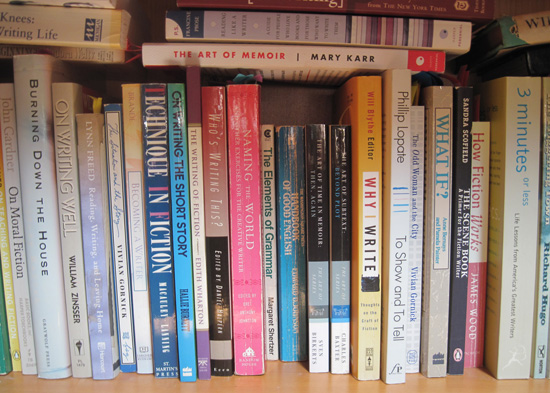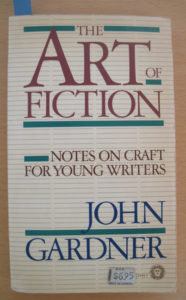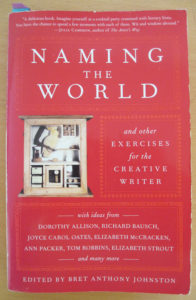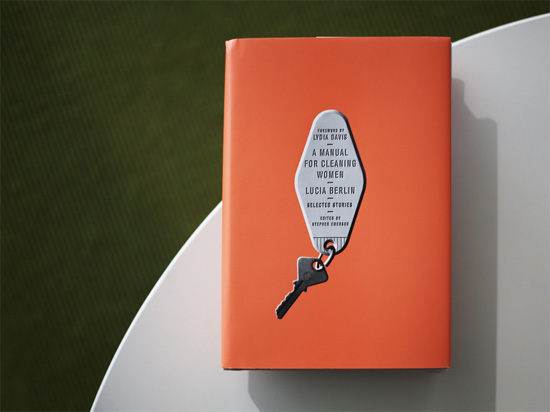Best Books on Writing: A Series, Part 1

I get a little weary just thinking about books on writing, especially the “how to” variety. There are so many out there–books on how to become a writer, books on how to structure a story or novel, books on how to create interesting characters, books on motivating yourself to write and overcoming obstacles, and–my favourite–books on how to make a million bucks as a writer.
Most of them are unreadable. They make you not want to write.
How many times have I browsed the writing section in the actual places that were once known as bookstores, opened one, and found myself drifting off to sleep in the vertical position. As a general rule, they tend to be either boring and dry, or too reliant on reductive formulas for constructing plots or creating interesting characters.
Really, there are no formulas for writing any kind of fiction but the most cliched; and any book that purports to teach you how to write well, ought to be interesting, itself, to read. Any really good book on writing should make you want to write, and give you some good tips along the way.
But thankfully, there are some very good books on writing, and the good ones don’t tell you how to write so much as tell you what took place when an author wrote something wonderful. What are the components, the characteristics, the ingredients of great writing? This (it just so happens) is also what my workshop is about. And there are other interesting and useful ways to write about writing, i.e. about the process, issues of style, and the writing life itself. These kind of books can be of great interest.
In my recommendations, I’m going to ignore the three books most often cited in these kind of lists, i.e. the ones by Stephen King, Anne Lamott, and Natalie Goldberg. Everyone already seems to know about them, they don’t need any further promotion.
The books I am recommending, are here because I found them fascinating to read, provocative, and because they offer considerable insight into the act and art of writing. Some are classics, others barely known and hence deserving of more attention.
 THE ART OF FICTION by John Gardner
THE ART OF FICTION by John Gardner
This is a classic. I consider it to be the best book I’ve read on writing; but it’s also a book near and dear to my heart, as I was first introduced to it by Barbara Gowdy, in the incredible workshop I took with her in the 90s. Gowdy used prompts from this book and many of the larger concepts in it informed her teaching. Gardner and Gowdy’s workshop, in turn, formed much of the basis of my workshop.
Along with being a great novelist, Gardner was the most influential writing teacher of the 1980s. He understands what makes great literature great, and can convey that to aspiring writers in comprehensible language and sentences as beautiful and succinct as the ones he writes about. There are sections in this book I have read aloud in workshop for some 25 years, and I never tire of them. I am struck again and again by how profound his grasp of the mechanics of writing and story-telling are, how much he has to offer anyone wanting a thorough exploration of every aspect of the craft, and how broad an understanding he has of literature from the ancients to the classics to the contemporary. And all of this in highly entertaining, perfectly sculpted prose.
Chapter headings alone set this book apart: “Aesthetic Law and Artistic Mystery,” Basic Skills, Genre, and Fiction as Dream,” “Interest and Truth.” You already know you are in for revelation. Two of his more far-reaching concepts–Fiction as Dream and Authenticating Details–actually changed the way I thought about literature, writing, and teaching writing. Just now I open the book at andom and find a sentence like this: “If Lois Lane and Superman were to wander into a scene by Henry James what would they think of it and how would they affect it?” Just trying that on for 10 seconds makes my brain expand in fun and uncomfortable ways.
One caveat: parts of this book may be hard to grasp by anyone who does not have a considerable amount of serious reading behind them. But other sections should be accessible to anyone.
 NAMING THE WORLD edited by Bret Anthony Johnston
NAMING THE WORLD edited by Bret Anthony Johnston
This is a wonderfully rich collection of mini lectures/explications/discussions on every aspect of the craft, by dozens of eminent authors, each with a relevant prompt at the end. The prompts are very good, and the workshop lectures even better–with chapters covering such well worn subjects as character, point of view, tone, plot and narrative, dialogue and voice, descriptive language, revision, etc., yet all of it seems fresh.
The great appeal and interest of this book comes from its wealth of subjects, explored by so many very different and highly accomplished authors, i.e. it’s not one woman telling you how she writes or how she thinks you should write. And the subjects themselves are so enticing and juicy: i.e. “Destroying What you Love,” “The Monster in the Attic,” “Learning to Lie,” “What do You Want Most in Life?” “Your Five Seconds of Shame!” and “Writing Sex Scenes.” Reading this book, you will want to read on, and by the time you have worked your way through even half of it, you will know way more about writing than when you started it. With any luck, you will also be full of new ideas and your writing will improve.


